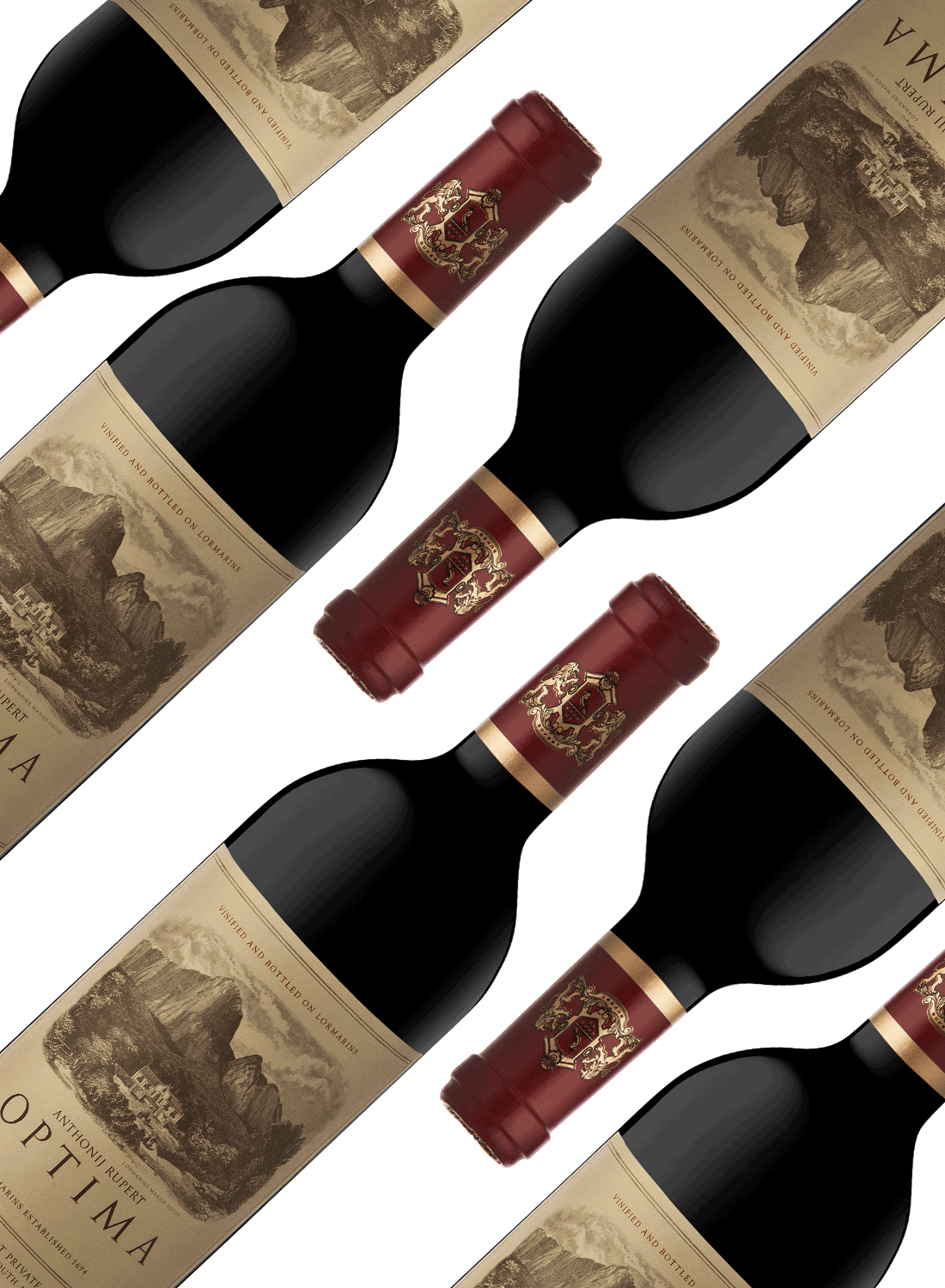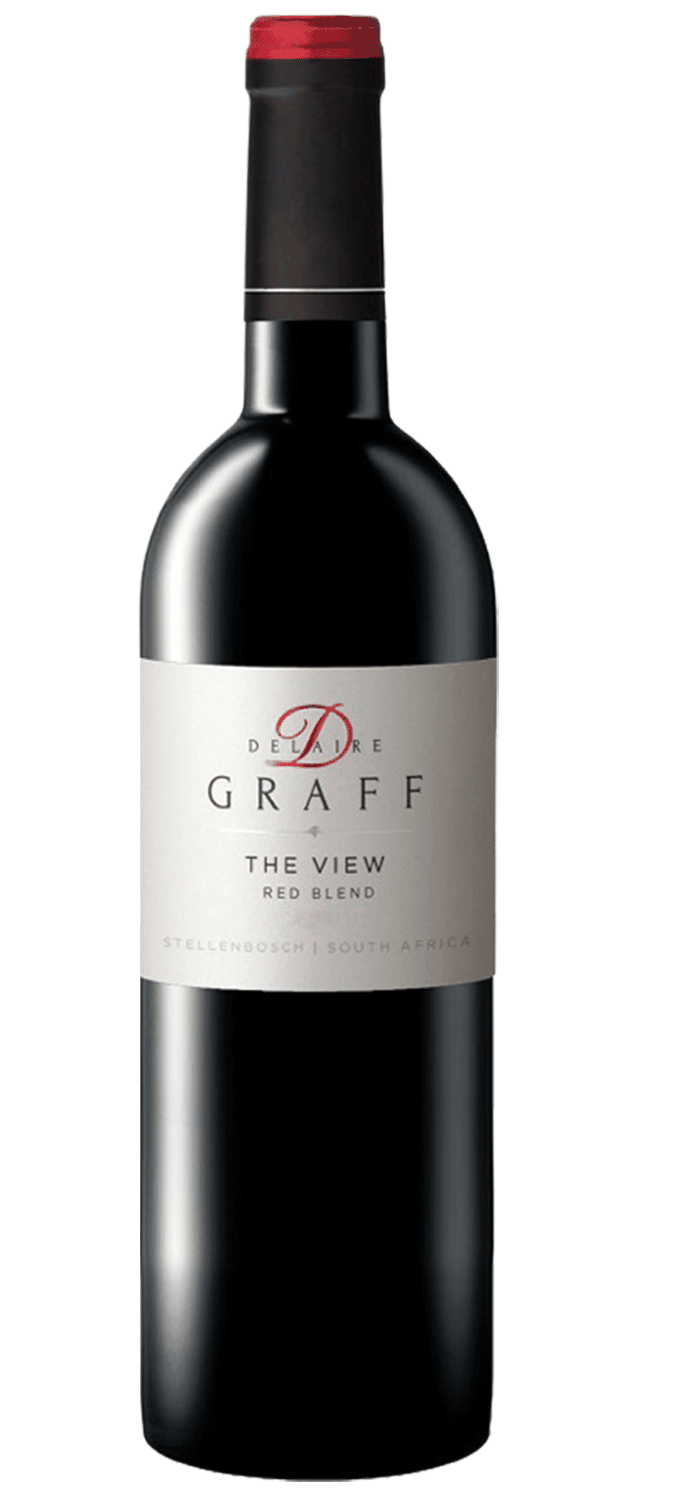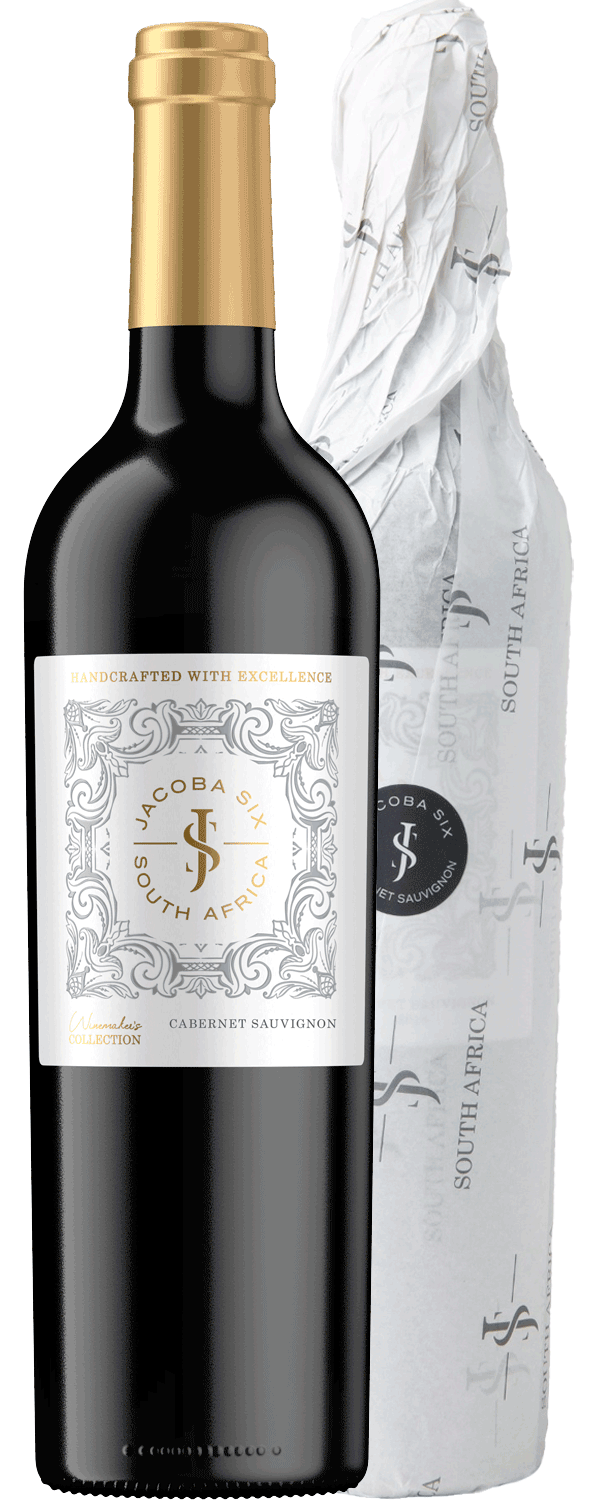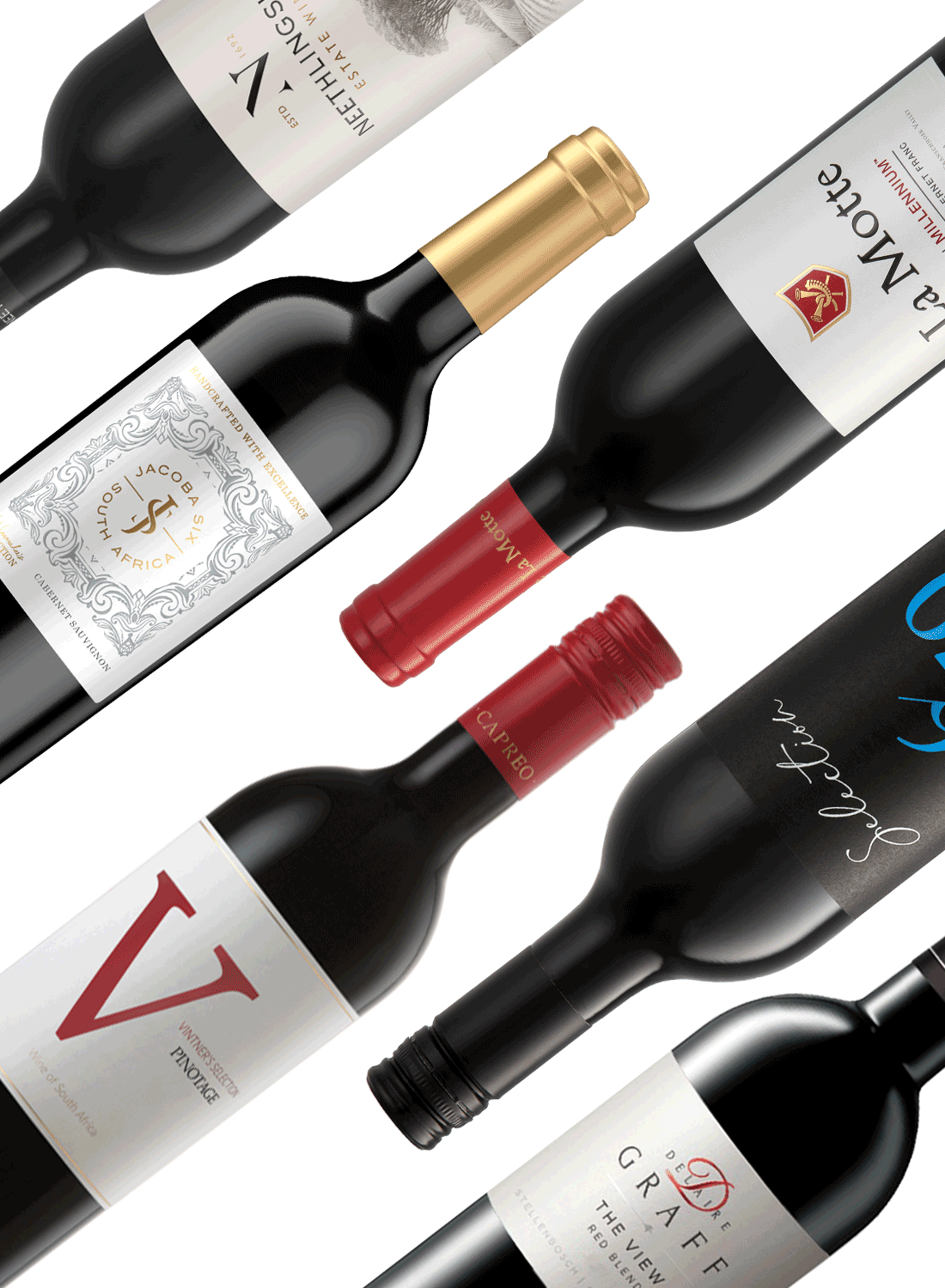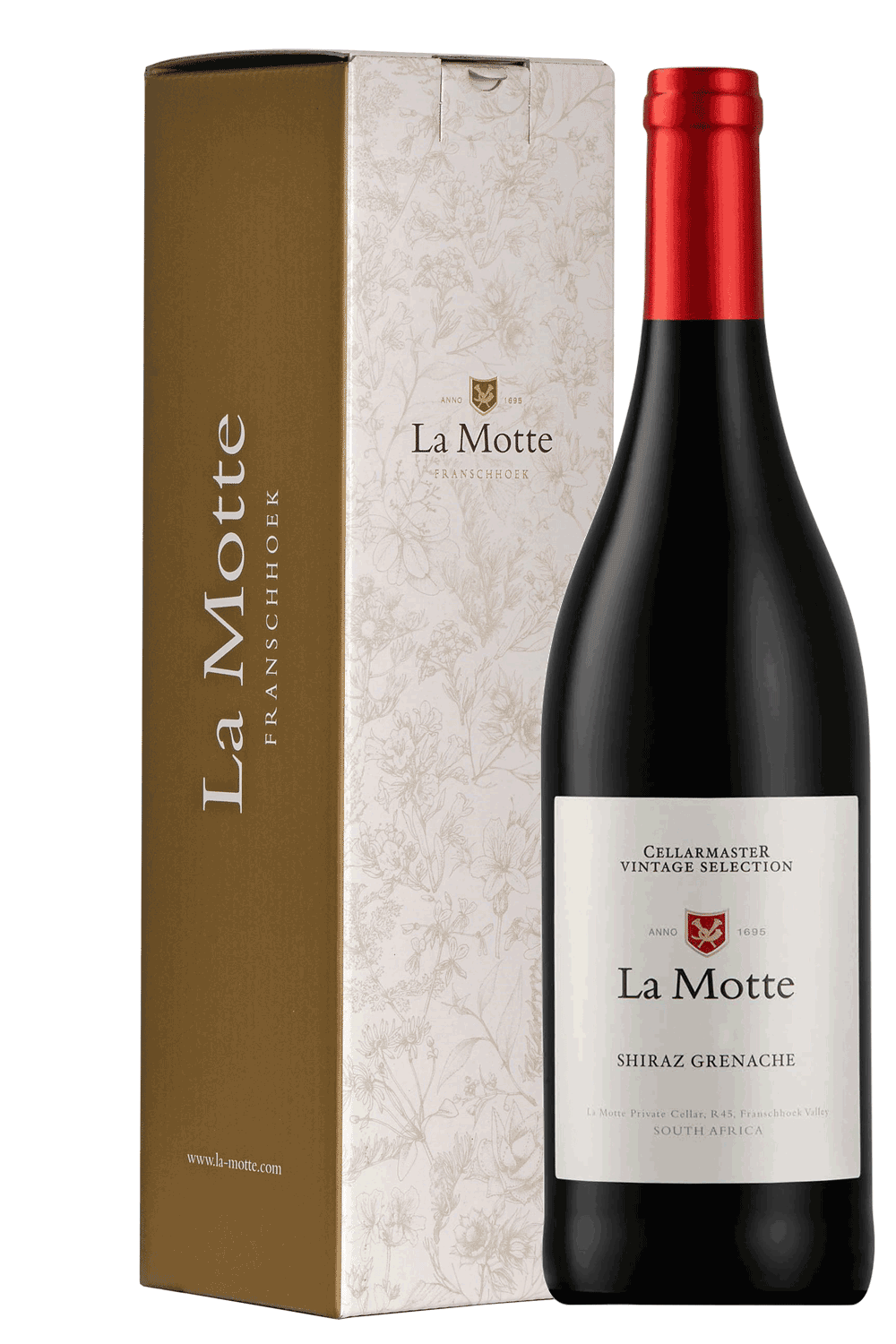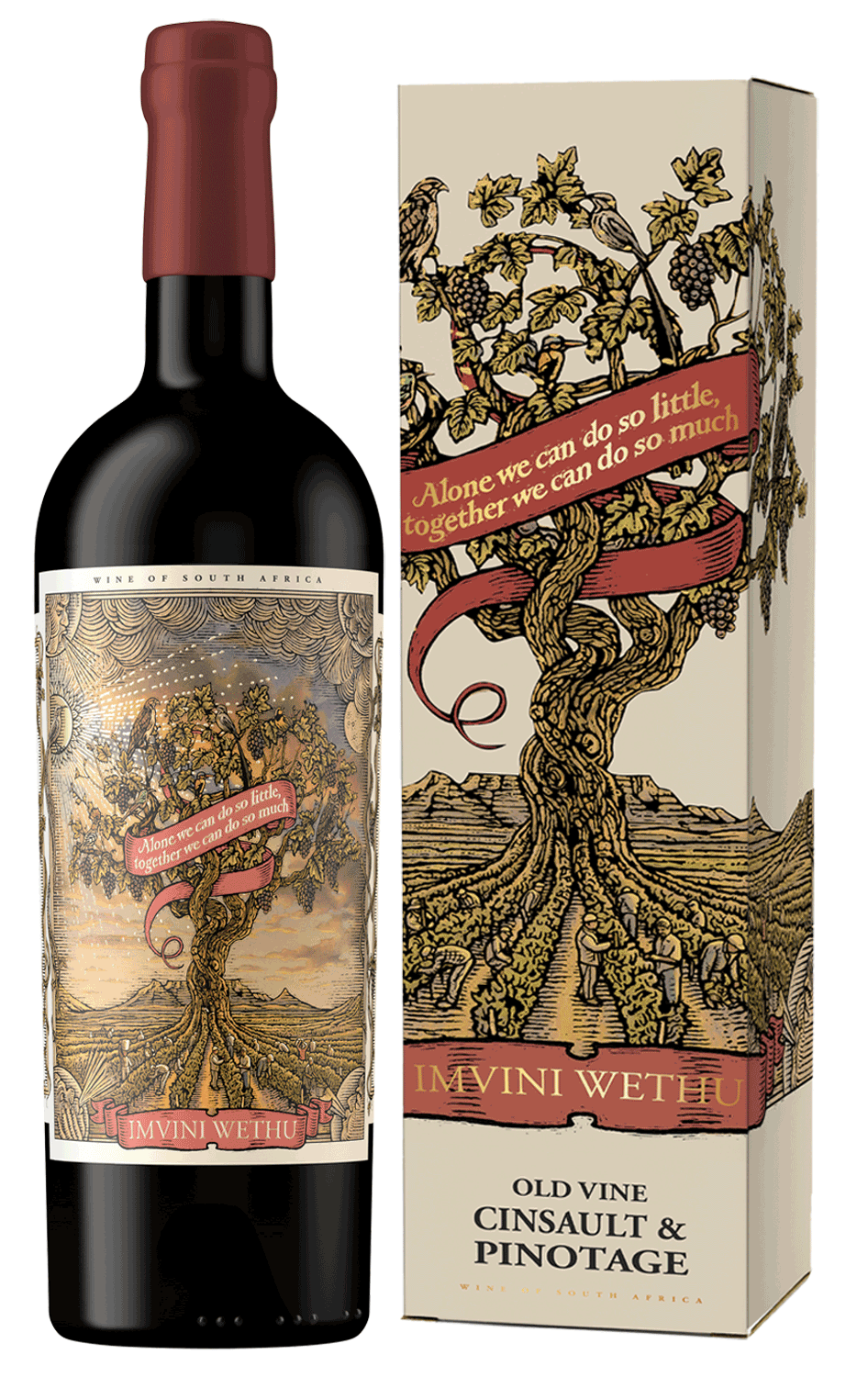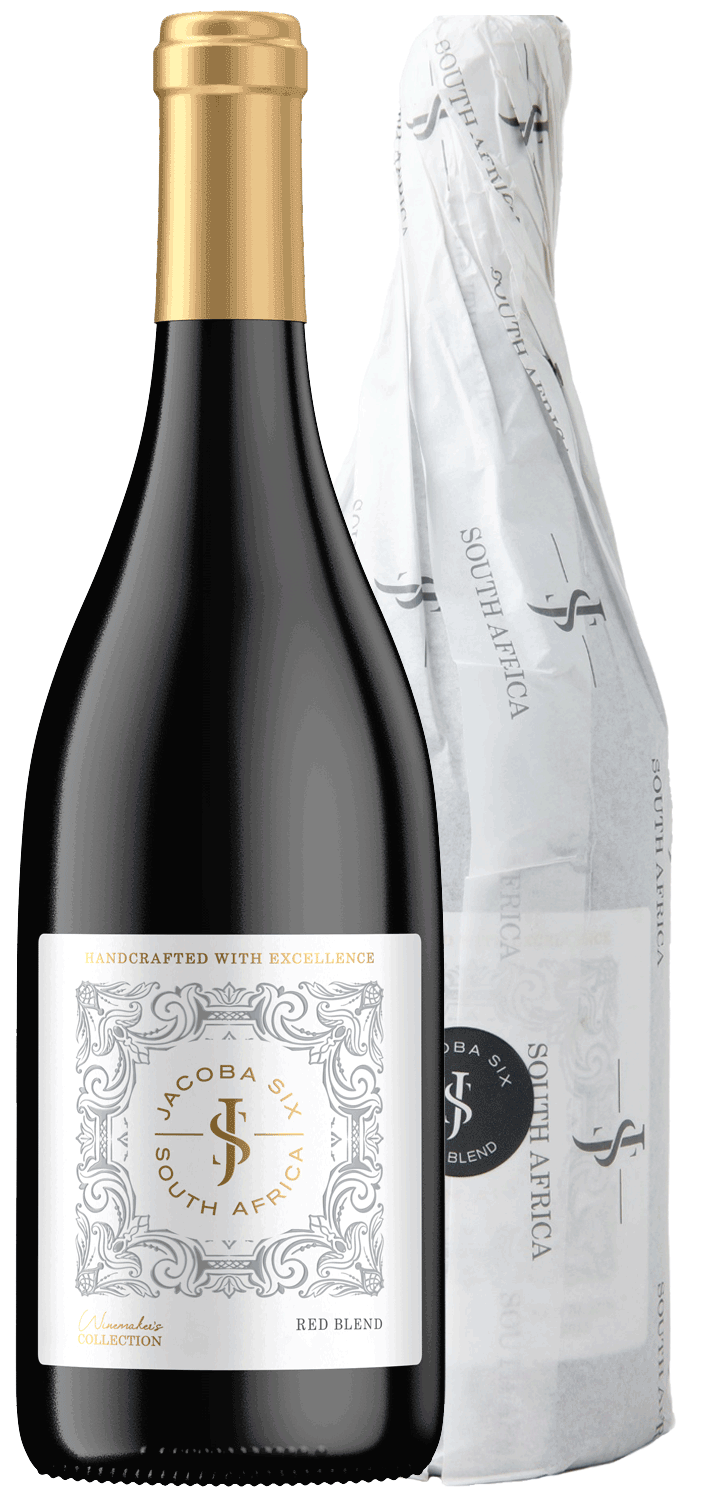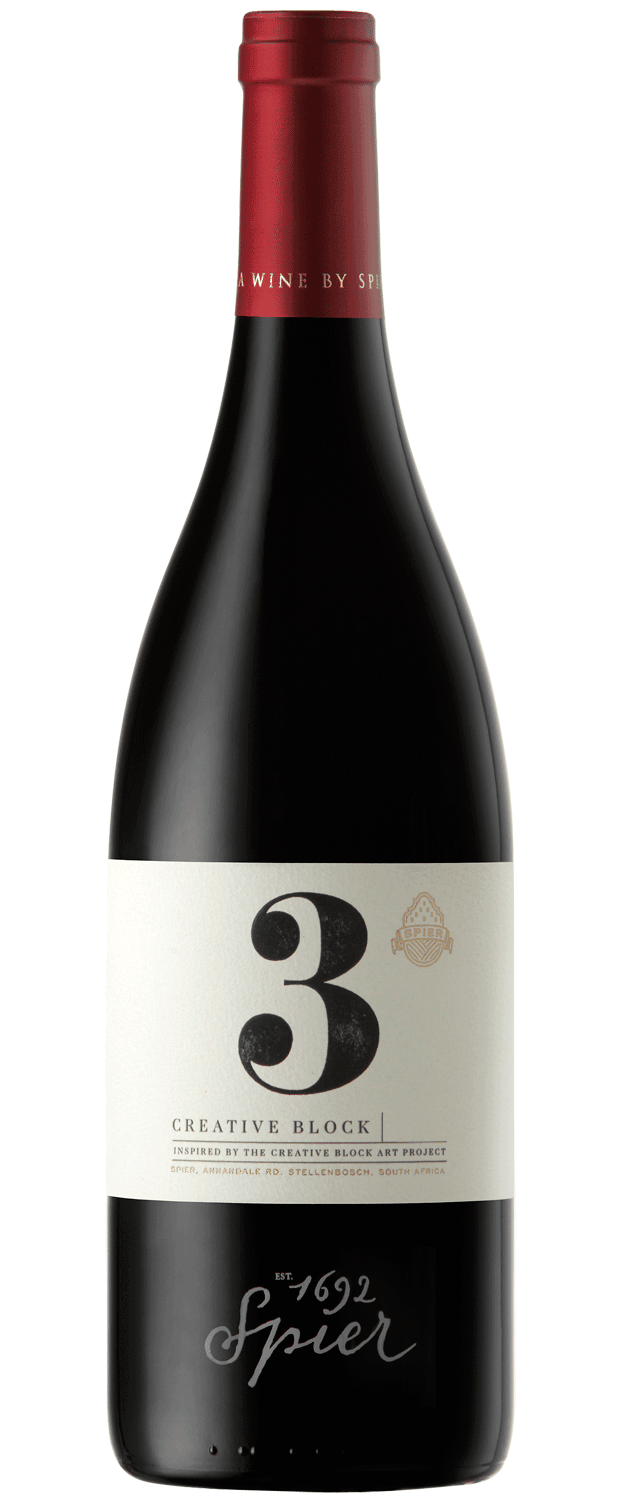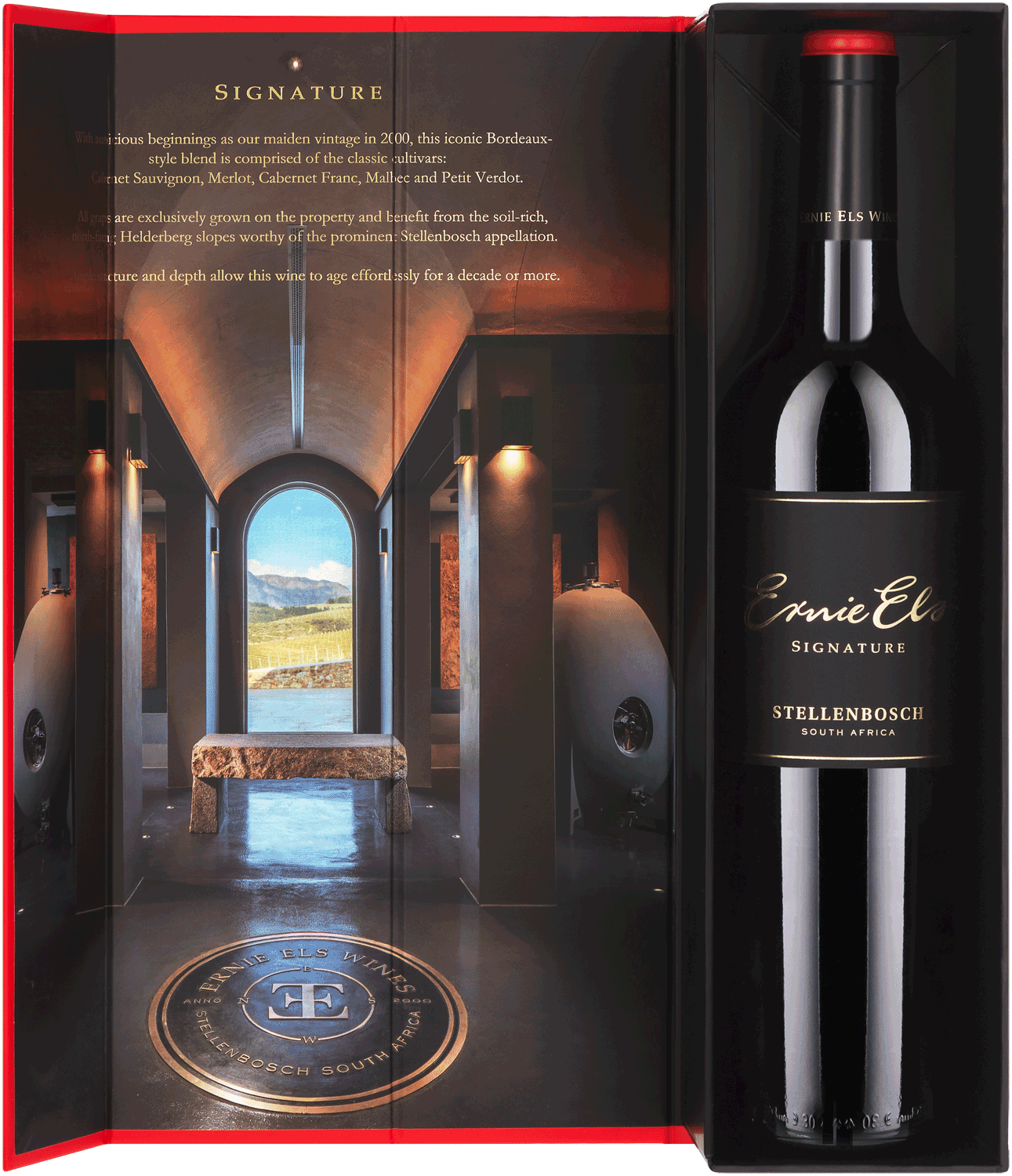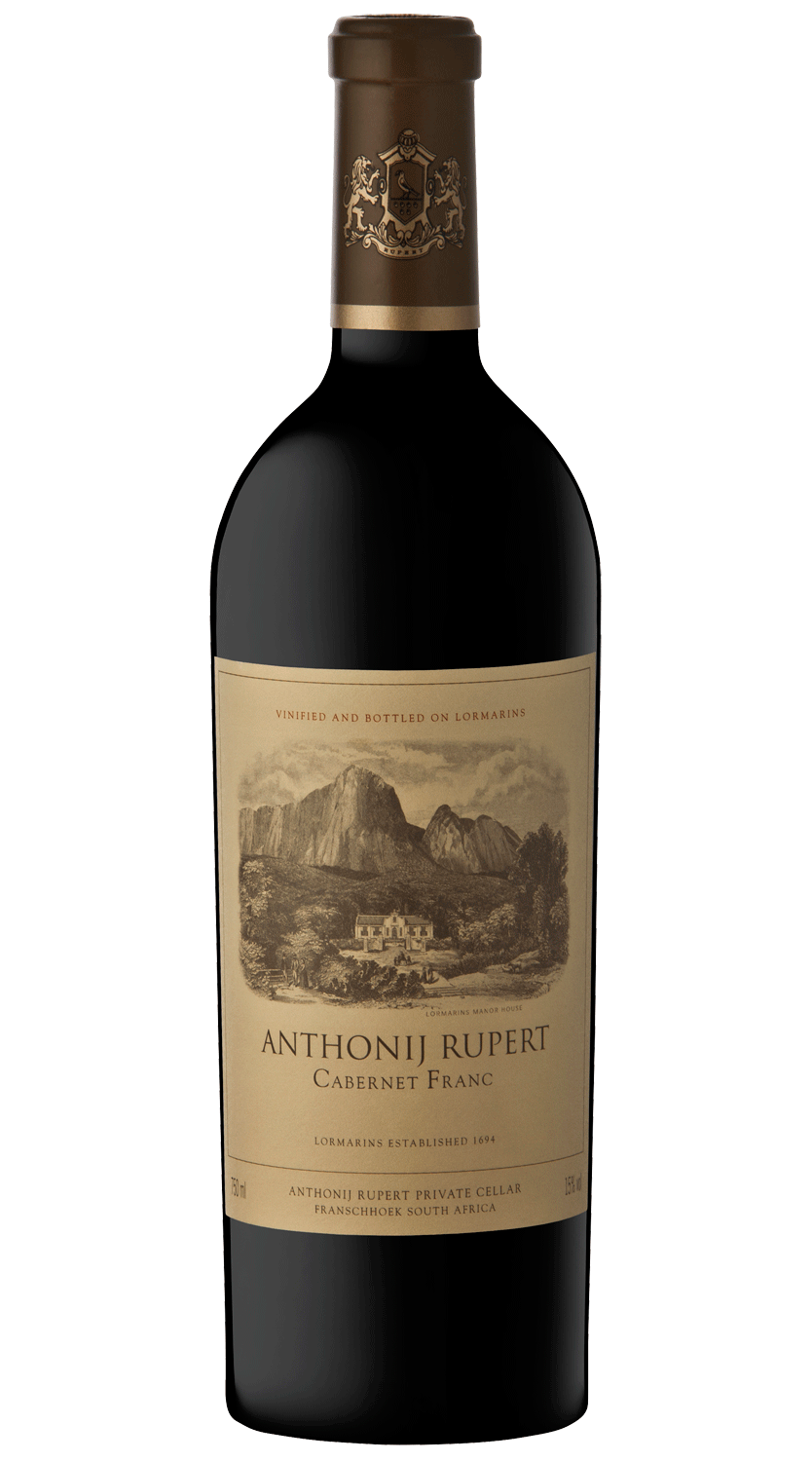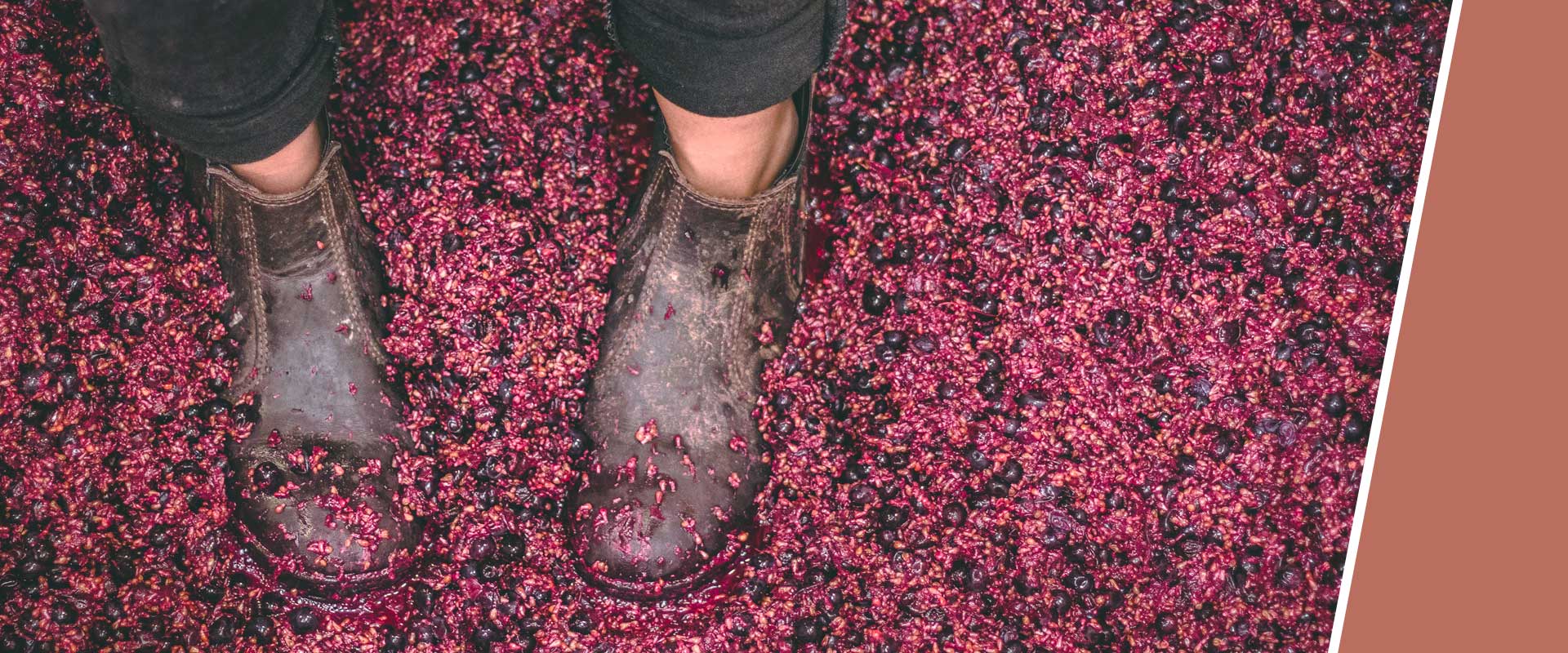
RED WINES FROM SOUTH AFRICA
RUBY-RED PLEASURE IN THE GLASS
Red grape varieties take up almost half of South Africa's Winelands – Cabernet Sauvignon is planted most often, closely followed by Shiraz and Pinotage, South Africa's national grape, which originated in the Cape. Whether full-bodied and complex, fruity or spicy: thanks to the optimal climatic conditions, the red wines from the Cape offer wine lovers the highest pleasure.
Content: 4.5 Liter (€22.17* / 1 Liter)
Last lowest price: €99.75*
and Ingredients can be found here
Content: 0.75 Liter (€24.00* / 1 Liter)
and Ingredients can be found here
Content: 0.75 Liter (€13.27* / 1 Liter)
Last lowest price: €9.95*
and Ingredients can be found here
Content: 0.75 Liter (€22.67* / 1 Liter)
and Ingredients can be found here
Content: 0.75 Liter (€38.67* / 1 Liter)
and Ingredients can be found here
Content: 4.5 Liter (€19.99* / 1 Liter)
Last lowest price: €89.95*
and Ingredients can be found here
Content: 0.75 Liter (€17.27* / 1 Liter)
and Ingredients can be found here
Content: 0.75 Liter (€26.67* / 1 Liter)
and Ingredients can be found here
Content: 0.75 Liter (€26.67* / 1 Liter)
and Ingredients can be found here
Content: 0.75 Liter (€25.27* / 1 Liter)
and Ingredients can be found here
Content: 0.75 Liter (€25.27* / 1 Liter)
and Ingredients can be found here
Content: 0.75 Liter (€39.93* / 1 Liter)
and Ingredients can be found here
Content: 0.75 Liter (€14.60* / 1 Liter)
and Ingredients can be found here
Content: 0.75 Liter (€25.33* / 1 Liter)
and Ingredients can be found here
Content: 0.75 Liter (€31.73* / 1 Liter)
Last lowest price: €23.80*
and Ingredients can be found here
Content: 0.75 Liter (€53.27* / 1 Liter)
and Ingredients can be found here
Content: 0.75 Liter (€36.00* / 1 Liter)
and Ingredients can be found here
Content: 0.75 Liter (€29.27* / 1 Liter)
and Ingredients can be found here
Content: 0.75 Liter (€46.60* / 1 Liter)
and Ingredients can be found here
Content: 0.75 Liter (€30.00* / 1 Liter)
and Ingredients can be found here
Content: 0.75 Liter (€50.60* / 1 Liter)
and Ingredients can be found here
Content: 0.75 Liter (€86.60* / 1 Liter)
and Ingredients can be found here
Content: 0.75 Liter (€66.60* / 1 Liter)
and Ingredients can be found here
Content: 0.75 Liter (€27.93* / 1 Liter)
and Ingredients can be found here
What our Customers think
Red Wines from the New World Wine – South Africa
Red wine has probably been drunk for about 8000 years. Especially in ancient times, red wine was the most popular drink and was also considered as medicine. Particularly the Old Wine World with France, Italy and Spain produce highly popular red wines today and are considered absolute classics. France is known for its red wines from the wine regions of Burgundy and Bordeaux, with the indispensable grape varieties Merlot and Cabernet Sauvignon. Great red wine icons also come from Italy, for example with a Barolo made from the Nebbiolo grape or also the Brunello di Montalcino made from the Sangiovese grape variety. Probably the best-known Spanish speciality is elegant red wines made from the Tempranillo grape from the northern Spanish wine-growing region of Rioja. Popular red wines from Germany are mostly made from the Spätburgunder (Pinot Noir) grape variety, whose velvety and fruity body is international appreciated.
However, red wines from the New Wine World, such as South Africa, do not have to hide behind the wine giants either. South African red wines stand out for their exceptionally high quality, their intense aroma and their full-bodied character. Not least because the South African climate creates the very best conditions for the red grape varieties. Normally, South Africa's temperature would be far too hot for the vines, but protective vineyards and cool sea winds (the so-called: Cape Doctor) create a perfect Mediterranean environment and are the cornerstone for perfect ripening of the grapes. The most popular red grape varieties used by South African winemakers are French varieties such as Cabernet Sauvignon, Merlot and Shiraz. However, the national grape variety Pinotage takes the most significant role. The cross between Pinot Noir and Hermitage convinces with particularly fruity aromas such as dark berries, but also with a certain spiciness and even chocolate and mocha notes can often be noticed.
The production and storability of red wines
Unlike white wine production, red wine grapes are not pressed immediately, as otherwise the colouring substances in the skins cannot dissolve and end up in the juice. For this reason, the blue and red grapes are crushed into mash and then fermented by organic substances and bacteria. In red wine production, a distinction is made between two main processes:
1. Mash fermentation: the fermentation tanks of the mash are open so that oxygen contact is possible. The oxygen causes the organic substances to multiply more quickly and allows alcohol to be produced. The alcohol in turn releases the colour and tannins from the skins. Normally, the mash would be left for a few more days to continue the red wine production. However, if the mash is not left to rest but the juice is pumped off directly, this would be the basis for the production of rosé wine, Weißherbst or Blanc de Noir.
2. Thermal treatment of the mash: the warmer the environment, the faster the fermentation of the mash. Winemakers often heat the fermentation tanks up to 85 degrees Celsius so that the colouring substances can be released from the grape skins here as well. In contrast to mash fermentation, this method often produces fruitier red wines with less tannins.
After fermentation, the young red wines are subjected to biological acid reduction (BSA) or malolactic fermentation. During this process, the malic acid contained in the wine is converted into milder lactic acid by adding lactic acid. The result: The red wine becomes smoother.
Red wines often have great storage potential. The more tannins and the higher the alcohol content of a red wine, the higher its storage potential. This can be between 5 and 10 years. Top wines from top vintages even manage up to 20 years and longer. The rule of thumb to drink red wine at room temperature is long outdated, because the average temperature in the house today is much higher than it was a few decades ago. The drinking temperature of red wine depends on the complexity of the wine: young red wines, with a fruity and light character, should be drunk between 12-14 degrees, while the drinking recommendation for red wines with more tannins and a stronger body is 14-16 degrees. Heavy, powerful red wines, on the other hand, should have a maximum drinking temperature of 18 degrees.
South African Cape Blends – The Counterpart to French Bordeaux Wines
Bordeaux wines are not only extremely popular wine blends, but also a protected term. The oldest and probably best-known wine region of the same name, Bordeaux, produces the absolute red wine classics from the grape varieties Merlot, Cabernet Sauvignon and Cabernet Franc. The famous Bordeaux wine is almost exclusively a blend of two grape varieties, in which Merlot is almost always used. Typical of the popular Bordeaux style, it is dry and complex in character, with aromas of plums and various dark berries.
South African winemakers' answer to Bordeaux wines is their own brand: the Cape Blend. This term was coined at the turn of the millennium by Beyerskloof, which, like the Warwick winery before it, created a globally celebrated blend of Pinotage. The special thing about a Cape blend is that the Pinotage grape variety sometimes takes up to 70% of the blend and is then typically blended with Merlot, Cabernet Sauvignon or Shiraz (Syrah). The more Pinotage in the red wine blend, the fuller-bodied, richer and more intense the character. A well-known wine-growing region for red wines is Stellenbosch. The Beyerskloof Synergy Cape Blend, with its cedar nuances and soft tannins, is a worthy representative of South African red wine blends. Also from Stellenbosch is the Warwick Three Cape Ladies, which has fruity aromas with dark chocolate nuances. Another representative of the South African wine-growing region is the elegant Meerlust Rubicon, which has wonderful hints of vanilla and plum. Mulberries and well-integrated oak notes are shown by the highly awarded La Motte Pierneef Syrah-Viognier, whose vines were grown in Franschhoek, in the Western Cape.
A red wine can be enjoyed not only as a terrace wine, but also in combination with a spicy roast duck on wild rice or, for example, a creamy lasagne with lamb. Red wines are great food companions, but the stronger and more intense the red wine, the heartier the food and the spicier the cheeses.

